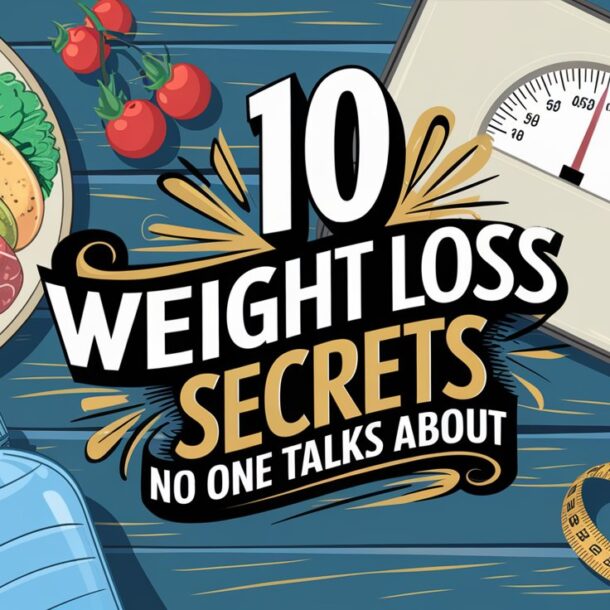
Please note: This website contains affiliate links. As an Amazon Associate, we earn from qualifying purchases at no additional cost to you.
Walk down the health aisle of any store, and you’ll find shelves overflowing with supplements claiming to boost energy, burn fat, improve sleep, and even transform your life. It’s easy to feel overwhelmed and wonder, “Do I really need these?“
For beginners, supplements can be confusing, and they aren’t always necessary. The truth is, they’re meant to complement your diet—not replace it. If you’re considering adding supplements to your routine, this guide will break down what you need to know, how to decide if you need them, and how to choose the right ones for your goals.

What Are Supplements, and How Do They Work?
Supplements are products designed to fill gaps in your nutrition or enhance specific aspects of your health. They come in various forms, including vitamins, minerals, herbs, and protein powders. While some people benefit from them—like those with specific deficiencies or fitness goals—most of your nutrients should still come from food.
The key is understanding that supplements are helpers, not magic fixes. They work best when paired with a balanced diet, regular exercise, and good sleep.
Do You Really Need Supplements?
Not everyone needs supplements, but here are some situations where they might help:
1. Nutrient Deficiencies
If your diet lacks essential nutrients—like calcium, iron, or vitamin D—supplements can help fill the gaps. Blood tests can identify deficiencies, so consider speaking with your doctor first.
2. Specific Life Stages
Pregnant women, older adults, and people recovering from illness may have unique nutrient needs. For example, folic acid is crucial during pregnancy, while older adults often need extra vitamin B12 or calcium.
3. Fitness Goals
If you’re building muscle, training for a marathon, or trying to lose weight, supplements like protein powders, creatine, or branched-chain amino acids (BCAAs) might support your efforts.
4. Dietary Restrictions
Vegans, vegetarians, or anyone avoiding certain food groups may miss out on nutrients like B12, omega-3 fatty acids, or zinc. Supplements can help bridge these gaps.
How to Decide What’s Right for You
- Start with Food First
The best way to get your nutrients is through whole, nutrient-dense foods. Fruits, vegetables, lean proteins, whole grains, and healthy fats provide a wide range of vitamins and minerals in their most absorbable forms. - Identify Your Goals
Are you looking to boost energy, support immune health, or improve recovery after workouts? Knowing your specific needs will help you focus on the right supplements instead of trying everything at once. - Check with a Professional
Before adding anything to your routine, consult with a doctor, dietitian, or nutritionist. They can help determine if you actually need supplements and recommend safe options. They may also recommend running some bloodwork to see if you do have any deficiencies that could require adding vitamins or other supplements to your daily routine. - Avoid Mega-Doses
More isn’t always better. Over-supplementing can lead to side effects or even harm your health, especially with fat-soluble vitamins like A, D, E, and K. Stick to recommended daily doses.
Common Supplements and What They’re For
Here’s a quick breakdown of some popular supplements and why people take them:
1. Multivitamins: A convenient option to cover general nutrient gaps, but not a replacement for real food.
2. Vitamin D: Often recommended for those with limited sun exposure or vitamin D deficiency.
3. Omega-3 Fatty Acids: Found in fish oil or algae oil, they support heart and brain health.
4. Probiotics: Promote gut health by supporting good bacteria in your digestive system.
5. Protein Powders: Useful for athletes or anyone struggling to meet protein goals through food alone.
6. Magnesium: Can help with muscle cramps, sleep, or stress.
7. Iron: Essential for people with anemia or heavy periods, but only take it if prescribed.
Tips for Choosing Quality Supplements
1. Read the Label
Look for reputable certifications like NSF International, USP, or Informed Choice. These labels indicate the product has been tested for quality and safety.
2. Avoid Unproven Claims
Be wary of supplements that promise miracle cures, rapid weight loss, or instant results. If it sounds too good to be true, it probably is.
3. Choose Simple Formulas
Avoid supplements with long ingredient lists or unnecessary additives. Stick to products with clear, straightforward formulations.
4. Check Expiration Dates
Supplements lose potency over time, so always check the expiration date before buying.
FAQs
1. Are supplements safe?
Most are safe when used as directed, but it’s important to consult a healthcare professional, especially if you have pre-existing conditions or take medication.
2. Can I take multiple supplements at once?
Yes, but make sure they don’t overlap or interact negatively. For example, too much iron or vitamin A can be harmful.
3. How long does it take to see results from supplements?
It depends on the supplement and your body. Some, like caffeine or protein powders, work quickly, while others, like probiotics or vitamin D, may take weeks or months.
4. Should kids take supplements?
Only if recommended by a doctor. Most kids can get everything they need from a balanced diet.
Conclusion
Supplements can be a helpful tool for boosting your health, but they’re not a one-size-fits-all solution. Start with a balanced diet, identify your specific needs, and consult a professional to determine if supplements are right for you. Remember, the best investment in your health is a foundation of good nutrition, exercise, and self-care. Supplements are just the icing on the cake—or better yet, the protein in the smoothie!
Please note: This website contains affiliate links. As an Amazon Associate, we earn from qualifying purchases at no additional cost to you.












